Contents

The Ultimate
Anxiety Toolkit
25 Tools to Worry Less, Relax More,
and Boost Your Self-Esteem
Risa Williams
Illustrated by
Jennifer Whitney and Amanda Way

Contents
INTRODUCTION
The Anxiety Coin
What does anxiety look like to you?
Have you ever paced the living room at 2 am, worried about something you said over and over again while simultaneously yelling at yourself to go to sleep? Have you ever gotten up to speak in front of strangers only to find yourself in some parallel universe where the words formed in slow motion? Have you ever spent all day worrying about the past or the future, and then later, about how much of the day you wasted worrying about the past/future? Have you ever walked into a room and suddenly believed everyone was staring at you because you had lettuce in your teeth even though you knew you hadnt eaten a salad?
Anxiety can feel like all these things, and many other not-so-fun renditions of them. I know because Im a therapist who specializes in helping other people navigate anxiety, and Ive also experienced anxiety myself.
As a former ballet dancer, Ive had the How do I keep smiling at the audience when Im terrified I might slip and fall? type of anxiety. As a professional writer, Ive had the How will I pay the bills while pursuing this as a career? flavor of anxiety. As a university professor, Ive had the How do I turn the projector onit seemed so easy when no one was watching? brand of anxiety. As a mom of two, Ive had the Here is my helpless newborn baby and I am the only human alive who can protect it! anxiety, and later, the Why couldnt I stop my toddler from running straight into the coffee table? kind of anxiety.
Becoming a parent made me realize I had to find better ways to stay calm and relaxed, in order to provide fun and happy experiences for my wonderful, deserving children.
I decided to learn more about the subject, to avidly read books about anxiety, and to learn more about how an anxious brain works. After reading Feeling Good by David D. Burns (1981), I started to realize:
* I might be able to control the thoughts Im thinking and, therefore, what I feel as a result.
* In order to do this, I have to change the thoughts I am thinking.
* I need tools to help me change the thoughts I am thinking.
Around this time, I had just become a licensed clinical psychotherapist, and this newfound focus eventually led me to specialize in helping people manage many different types of anxiety. After discovering positive psychology, which emphasizes cultivating happiness and well-being, and learning more about mindfulness, which focuses on connecting with the present moment, I became inspired to create new tools that might help people navigate their own daily anxiety and stress in more positive ways. An added bonus was: the more that the tools helped other people, the more I remembered to use them in my own life, too!
After working with many clients who were feeling anxious, a few things became clear to me:
* Anxious people also tend to be insightful, energetic, and creative.
* Despite what they might tell you, anxious people actually accomplish a lot .
* Anxious people also tend to have a great sense of humor!
And this led to a few important discoveries: When youre feeling anxiety, you cant also be having fun. When youre feeling fun, you typically arent feeling anxious. Its like two sides of a coin. You can only mentally view one side of the coin at a time.
So, if I could convince these highly insightful people who were feeling anxious to channel all that energy into a creative exercise, or get them to tap into their imagination in a healthy way, or get them to laugh about some aspect of the situation, it would automatically flip the anxiety coin over. In other words:
Feeling of fun = Opposite of anxiety
When I was feeling anxious, what I craved most of all was a simple list of tools I could use to engage different parts of my brain. If these tools happened to be creative, they might feel less like work and more like fun. Because once you move toward fun, you have moved away from anxiety. You can only see one side of the coin at a time. It is my greatest hope that these tools will help you flip the coin over.
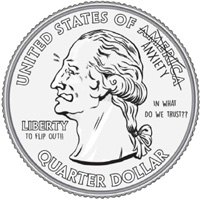
All pages marked with a  can be photocopied or downloaded from www.jkp.com/catalogue/book/9781787757707 for your personal use.
can be photocopied or downloaded from www.jkp.com/catalogue/book/9781787757707 for your personal use.
CHAPTER 1
When Youre Feeling
Stressed Out
THE POSITIVE SELF-TALK CHARGER
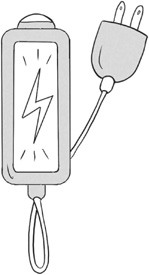
In order to start using the tools in this book, youre going to need a charger to plug them into that will provide a surge of energy: The Positive Self-Talk Charger . Most of us have a negative narration that runs in our heads all day long, making unwelcome proclamations like: You really screwed that up! or That was a complete disaster! Or, there might be negative self-talk about how people see you: He hates me because I said that! or My boss thinks Im useless! Negative self-talk is different for everyone (see: The Nametag and The Story Pen). Many people are completely unaware of how often the negative self-talk is playing all day long inside their minds. And yet, the amount of negative self-talk you are saying to yourself directly correlates to the amount of negative emotions you are experiencing each day. To simplify it down:
Negative self-talk = Negative emotions
Our brains are naturally wired toward a negativity bias, which means we are more inclined to focus on negative stimuli than positive input. This is part of the way we evolved as humansto gather information and clues from negative experiences or threats, and to learn from them. Unfortunately, this frequent gathering and rating of negative stimuli can influence our own thoughts about ourselves, and in order to change it, we have to counter it with repeated and frequent positive self-talk throughout the day. This is how we can start to change our emotional state and our own self-perception, too. Here is simple way to remember this tool:
Frequent positive self-talk = Positive emotions
Neuroscience nugget : Changing negative thoughts into positive ones isnt easy! As Andrew Newberg and Mark Waldman, authors of Why this word is so dangerous to say or hear, explain:> When doctors and therapists teach patients to turn negative thoughts and worries into positive affirmations, the communication process improves and the patient regains self-control and confidence. But theres a problem: the brain barely responds to our positive words and thoughts. The solution to this negativity bias? We must repetitiously and consciously generate as many positive thoughts as we can (Newberg and Waldman, 2012).
To begin, start listening to your internal thoughts more regularly. Become an observer of the negative narration as it appears. You dont have to change it; at first, you just have to notice it. By the time youve brushed your teeth, your negative narrator may have already filled you in on all your deficiencies, outlined all the unwanted stressors awaiting you, and predicted dozens of future catastrophes. What a way to start the morning!

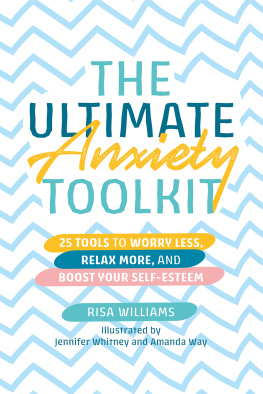





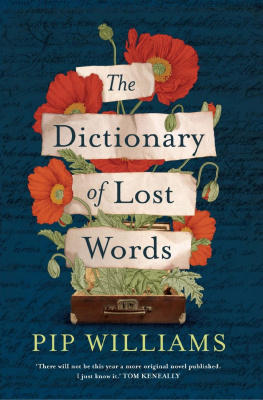
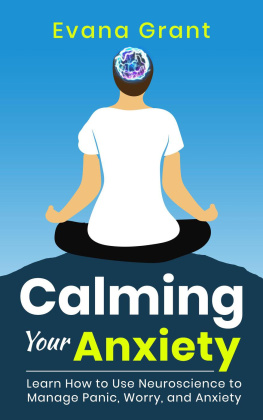
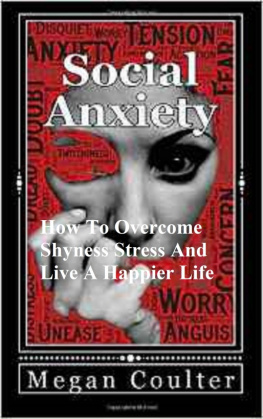

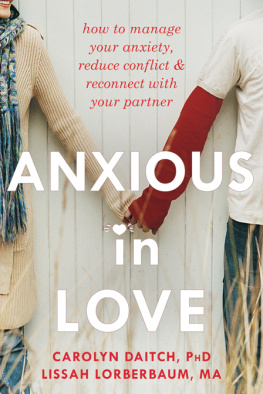
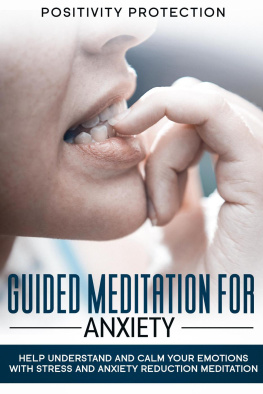
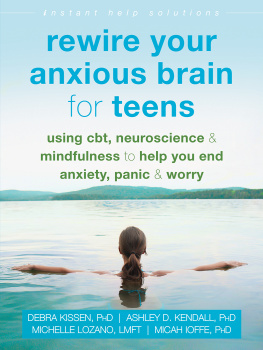
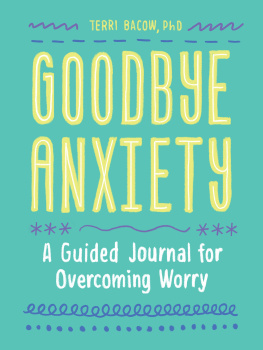
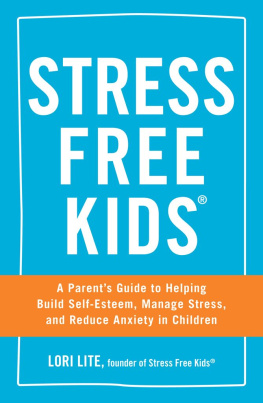
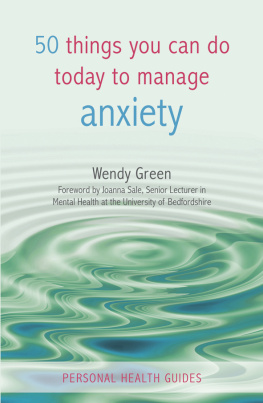
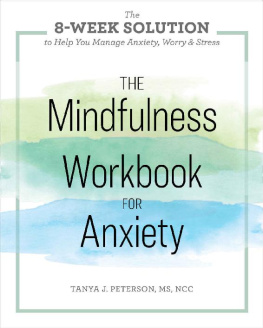
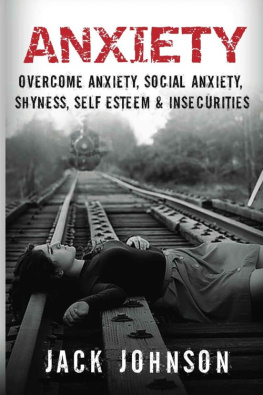




 can be photocopied or downloaded from www.jkp.com/catalogue/book/9781787757707 for your personal use.
can be photocopied or downloaded from www.jkp.com/catalogue/book/9781787757707 for your personal use.